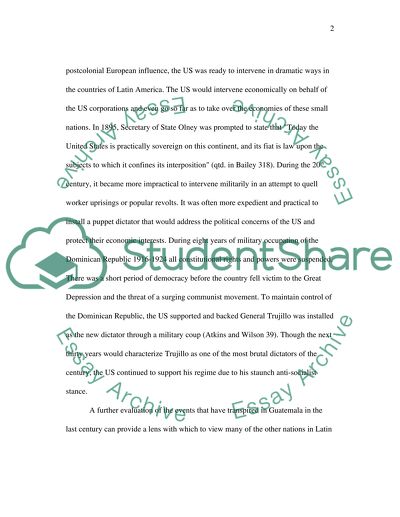Cite this document
(“Latin American Politics: US Sponsored Dictatorships Essay”, n.d.)
Retrieved from https://studentshare.org/miscellaneous/1528670-latin-american-politics-us-sponsored-dictatorships
Retrieved from https://studentshare.org/miscellaneous/1528670-latin-american-politics-us-sponsored-dictatorships
(Latin American Politics: US Sponsored Dictatorships Essay)
https://studentshare.org/miscellaneous/1528670-latin-american-politics-us-sponsored-dictatorships.
https://studentshare.org/miscellaneous/1528670-latin-american-politics-us-sponsored-dictatorships.
“Latin American Politics: US Sponsored Dictatorships Essay”, n.d. https://studentshare.org/miscellaneous/1528670-latin-american-politics-us-sponsored-dictatorships.


